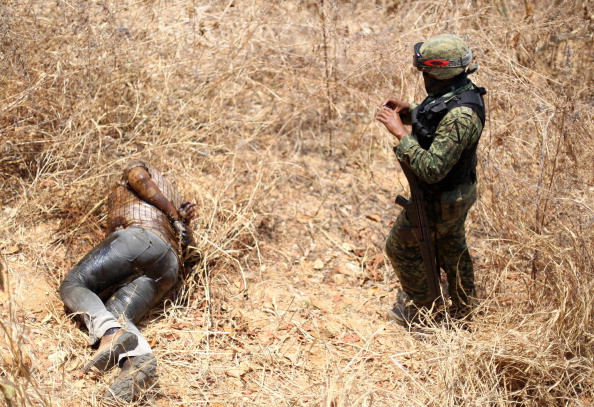Torture and ill-Treatment in Mexico: Amnesty Reveals Five Things We Should Know

According to a new report from Amnesty International, torture and ill-treatment is spiralling out of control in Mexico – and the perpetrators often go unpunished.
The report, entitled Out of Control: Torture and Other Ill-treatment in Mexico, claims the country's authorities are actively perpetrating torture, and the weak legal system is doing little to quell the war on drugs.
IBTimes UK looks at Amnesty's top five facts.
More than 7,000 Torture Cases in Three Years
The report, entitled Out of Control: Torture and Other Ill-treatment in Mexico, showed more than 7,000 people were tortured in the country between 2010 and 2013 - equating to a rise of 600%.
The authorities cannot continue to turn a blind eye to torture
One of the factors that lead to the increase in the number of cases has been linked to a spike in violence witnessed by the country after 2006 as a result of the government's "war on drugs".
Torture Perpetrated also by Authorities
Amnesty found that 64% of Mexican citizens are afraid they will be tortured if they are detained by the authorities, who are known to carry out beatings, near-hangings or sexual violence to obtain "confessions".
Arbitrary detention and the fabrication of evidence are often closely connected to the use of torture and other ill-treatment.
Torture is a Consequence of Weak Laws
The key factors in the escalating violence in Mexico are the inadequate laws available to deal with the use of brutal force and the lack of training, equipment and leadership provided to police to help them respond appropriately to peaceful protests, Amnesty said.
The police response to isolated incidents of violence often lead to violence against bystanders, peaceful demonstrators, journalists and human rights defenders.
Conviction Rate Extremely Low
The conviction rate in cases of torture is 0.006%, Amnesty warned, adding that at the state level the rate is even worse.
Out of the 7,000 torture cases reported in recent years, only 1,219 were investigated. The Federal Attorney General's Office only carried out 12 prosecutions for torture and just seven cases resulted in convictions.
"The authorities cannot continue to turn a blind eye to torture. Routine failure to enforce safeguards to prevent torture and other ill-treatment, coupled with investigations into complaints that are often biased and downplay the severity of the abuse, are indicative of a government that is failing to protect human rights," said Erika Guevara Rosas, Amnesty Americas Director.
Victims Belong to Marginalised and Vulnerable Groups
The majority of case victims, documented by Amnesty, belonged to marginalised communities and vulnerable groups, such as 'irregular migrants'. Torturers tend to target those who are least likely to be able to file complaints and seek justice.
© Copyright IBTimes 2025. All rights reserved.






















